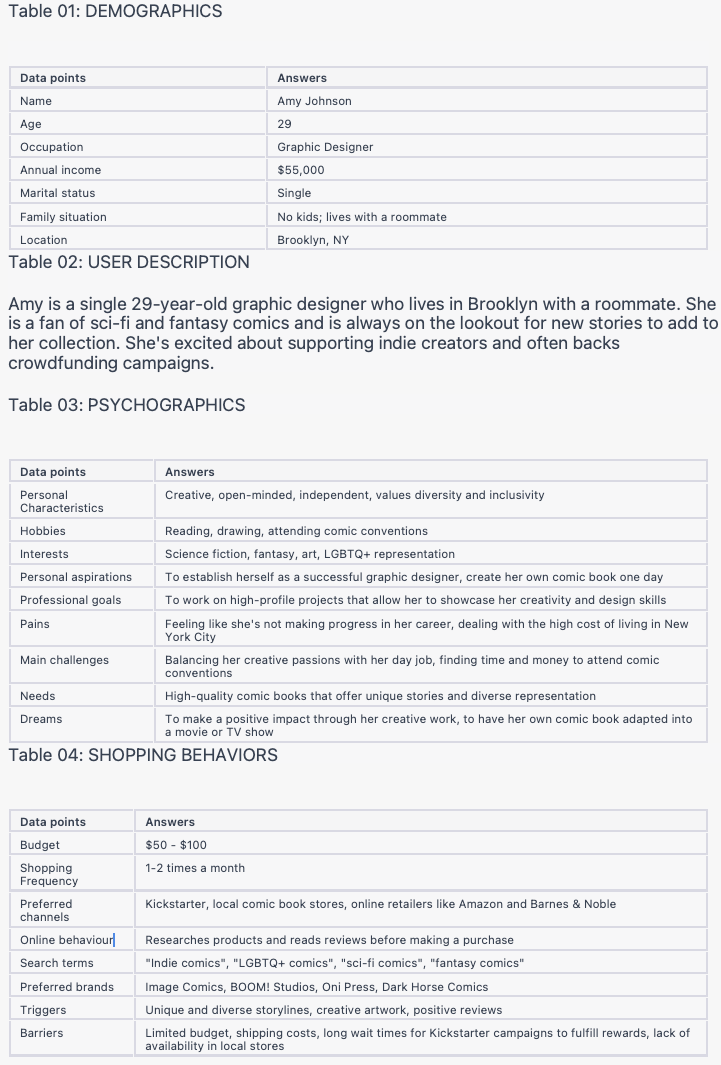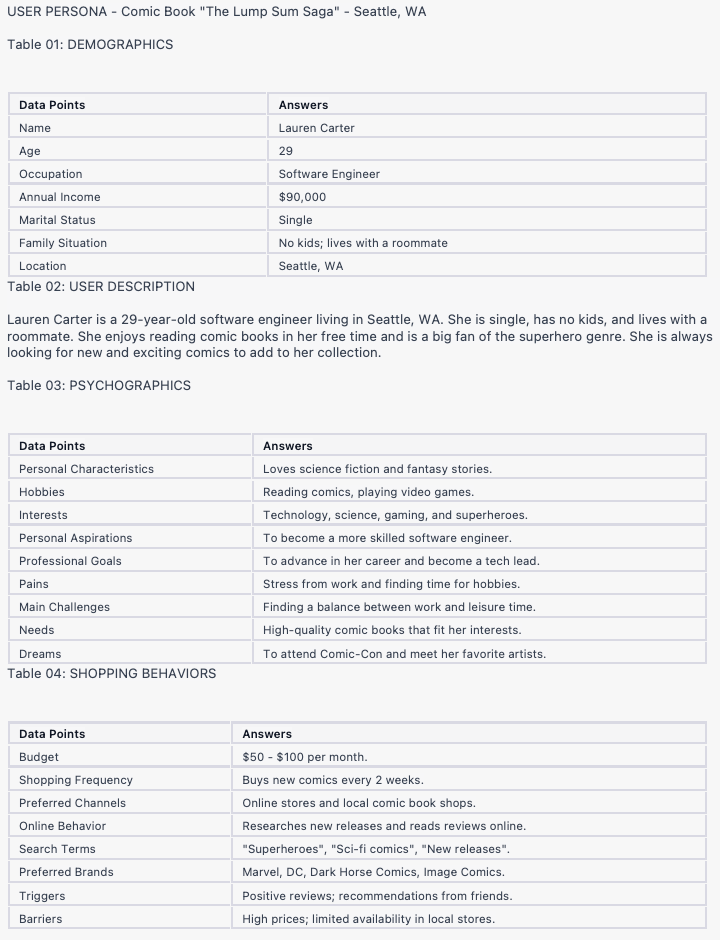TL;DR - Use chatGPT with the AIPRM Chrome extension & a prompt template from RonGPT to create a customer profile for your comic in a specific market.
Install AIPRM Extension via https://www.aiprm.com/ or the Google Chrome store.
Go to the chatGPT template linked at https://bit.ly/RonGPTBuyerPersona
Enter [product] - [location] and start the chat. e.g. Comic Book “The Lump Sum Saga” - Kickstarter.
The end result is chatGTP’s best guess for an ideal customer for your product at that location. Use this as a starting point to adjust your marketing and advertising.
“What do you create, and who do you create it for?”
~ Tyler James, Comics Launch, Session 193 As writers, most of us tend to write with a particular reader avatar in mind - our “ideal reader.” Failing to do this can be instant death for a comic. For example, writing graphic violence & sex into a comic for eight-year-olds is an obvious way to ensure your comic never succeeds and you end up on the news. When I write a script for The Lump Sum Saga, I am imagining my former students - middle-grade “gifted kids” who all thought they were adults. As a result, my series is close-to-young-adult SciFi, where death is allowed, the vocabulary is unique, and the readers are perpetually curious.
But one thing many creators forget is that the person who will actually buy our comic is frequently not the same as our ideal reader. In my case, my ideal reader has very little money and may not even have the ability to get to a comic shop or convention on their own. Discovering who is likely to actually buy your book is key to marketing your comic.
What is even more complicated is that internal sales data is only a record of who you have already found to buy your comic, and that has the potential to hold you back. For example, if you’ve only ever done one Kickstarter campaign, your data is likely telling you that you should spend your time advertising your comics to relatives and friends. Finding new markets can be very time-consuming and frankly is a long game based on educated guesses and trial and error.
Enter chatGPT and an awesome prompt template created by YouTube influencer Ron Hermosa. Watch my video to see the tool in action, and watch his video for details on how to install the Chrome extension. One key thing to know is that you can enter Kickstarter as the “location” parameter, and it seems to work. You can also test a particular product and enter the location of the next convention you’ll attend. Looking for regional preferences is something just too complicated to do without a tool like this. Try it using the title of your own comic, or select a comic similar to what you have planned. It’s super fascinating.
Here is what I got when I plugged Comic Book “The Lump Sum Saga” - Kickstarter into the template.
The scary fun thing is that I actually know this person and no, it isn’t the Pink Power Ranger! Ha! What is interesting is that the tool is encouraging me to market to people just like her.
This is what I got when I entered a physical location.
Prompt: Comic book "The Lump Sum Saga" - Seattle, WA
Overall, chatGTP prompted with this template gave me food for thought, and it seems to be in the right ballpark. That said, the output is only chatGPT’s guess based on what is likely very limited data. As such, I would treat the results it generates for my comic much like I would a weather forecast. I’d use the info as an expert’s analysis, but I wouldn’t bet the farm on it, especially if observations prove the results wrong. Common sense and trial and error testing are still required. But it is a pretty cool place to start. Even if it is 100% incorrect, getting a sample table that can be edited is helpful in itself.
The source material, including details on how to install the template extension are here.
Jump to 8:40 for the install instructions.
Ron Hermosa & Diana Muñoz at Design for Canva







Are you trying to sell your comic to the wrong person?